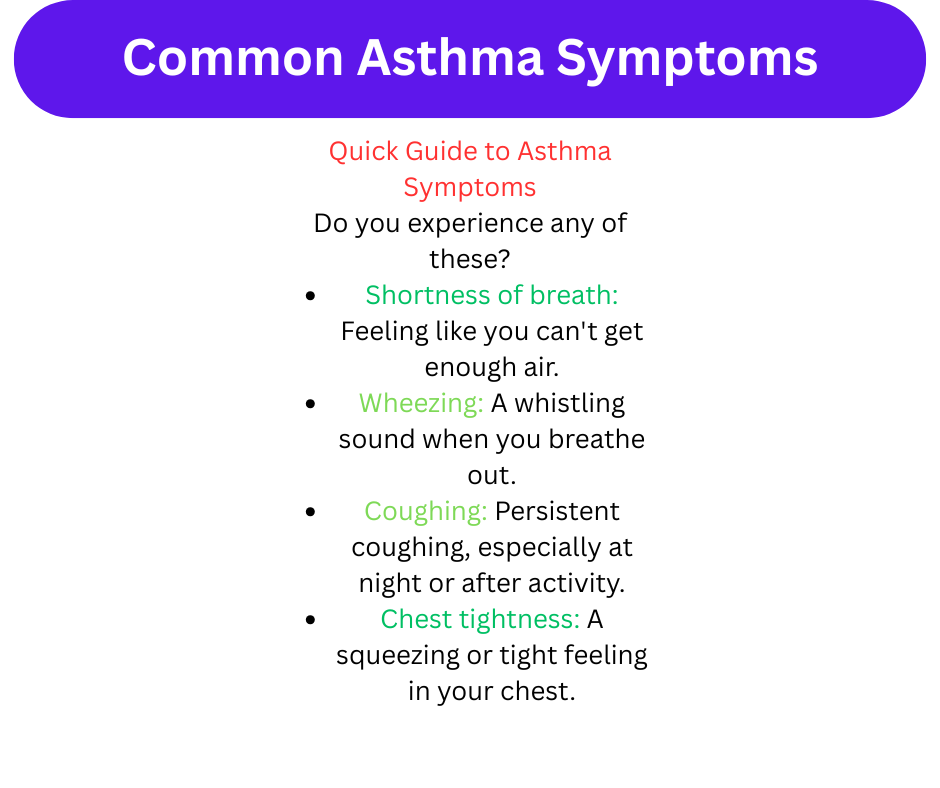Catch Your Breath: Understanding Common Asthma Symptoms
Do you ever feel like your lungs are tightening, making it hard to breathe? Maybe you hear a whistling sound when you exhale, or find yourself coughing more than usual, especially at night or after exercise? These could be signs of asthma.

Asthma is a common lung condition that can affect people of all ages. It causes the airways in your lungs to become inflamed and narrow, making it difficult for air to pass through. Recognizing the symptoms is the first step towards managing it effectively.
Here are some of the most common asthma symptoms to be aware of:
- Shortness of breath: This is a hallmark symptom, often described as feeling like you can’t get enough air into your lungs or feeling winded even with minimal activity.
- Wheezing: That high-pitched whistling sound when you breathe out is a telltale sign of narrowed airways.
- Coughing: Persistent coughing, especially at night, early in the morning, or after exercise, can be an asthma symptom. It might be a dry cough or produce mucus.
- Chest tightness: This can feel like a squeezing, pressure, or tightness in your chest.
It’s important to remember that:
- Symptoms can vary: Not everyone with asthma will experience all of these symptoms, and the severity can differ from person to person and even at different times for the same person.
- Triggers exist: Asthma symptoms can be triggered by various factors like allergens (pollen, dust mites, pet dander), irritants (smoke, pollution, strong odors), exercise, cold air, and respiratory infections.
- Symptoms can worsen: If left unmanaged, asthma symptoms can become severe and even life-threatening. This is known as an asthma attack.
What to do if you experience these symptoms:
If you’re experiencing any of these symptoms, it’s crucial to talk to your doctor. They can properly diagnose your condition and help you develop a management plan. This plan might include medications (like inhalers) to help control your asthma and prevent attacks, as well as strategies to avoid your triggers.
Living with asthma doesn’t mean you can’t live a full and active life. By understanding the symptoms and working with your doctor, you can effectively manage your asthma and keep those airways open so you can breathe easier!

Leave a Reply